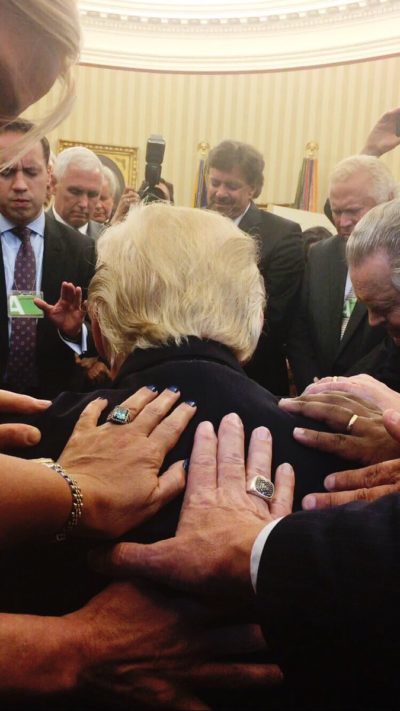In light of David Barton’s tacit admission that he has made multiple errors of fact in the Capitol Tour video, it is worth considering how he should respond. Thus far, he has simply edited out some errors and replaced the audio with updated information. The consequences are that new viewers of the video will assume that Barton presented the new information at the time of the tour and that viewers of the prior video will not have the benefit of what was altered. In addition, some historical errors remain in the altered video.
In the Capitol Tour video, you also have the awkward situation of participants in the 2007 tour saying they have been misled by the left when in fact they had just been misled by their tour guide — who now implicitly acknowledges it.
Something just doesn’t seem right about this manner of handling the situation, so I went to the ethical standards for historians for guidance about a more proper response.
Standards for Historians: Accuracy, Integrity, and Trust
The American Historical Association’s standards place a high value on accuracy, integrity and trust. Some statements from the standards of that organization are relevant.
By practicing their craft with integrity, historians acquire a reputation for trustworthiness that is arguably their single most precious professional asset. The trust and respect both of one’s peers and of the public at large are among the greatest and most hard-won achievements that any historian can attain. It is foolish indeed to put them at risk.
All historians believe in honoring the integrity of the historical record. They do not fabricate evidence. Forgery and fraud violate the most basic foundations on which historians construct their interpretations of the past. An undetected counterfeit undermines not just the historical arguments of the forger, but all subsequent scholarship that relies on the forger’s work. Those who invent, alter, remove, or destroy evidence make it difficult for any serious historian ever wholly to trust their work again.
Historians should not misrepresent their sources. They should report their findings as accurately as possible and not omit evidence that runs counter to their own interpretation. They should not commit plagiarism. They should oppose false or erroneous use of evidence, along with any efforts to ignore or conceal such false or erroneous use. (emphasis added)
Seems to me that this standard does not support the obscuring of errors but supports full disclosure. When information that has been presented is determined to be erroneous, such knowledge should not be hidden.
Teaching is basic to the practice of history. It occurs in many venues: not just classrooms, but museums and historic sites, documentaries and textbooks, newspaper articles, web sites, and popular histories.
Good teaching entails accuracy and rigor in communicating factual information, and strives always to place such information in context to convey its larger significance. Integrity in teaching means presenting competing interpretations with fairness and intellectual honesty.
The political, social, and religious beliefs of history teachers necessarily inform their work, but the right of the teacher to hold and express such convictions can never justify falsification, misrepresentation, or concealment, or the persistent intrusion of material unrelated to the subject of the course. (emphasis added)
Historians recognize that websites and public presentations of history perform a teaching function beyond the classroom. As such then, standards of accuracy and integrity are no different for web and public historical presentations.
The standards for historians recognize that historians will engage in advocacy positions, but they require historians to maintain the same standards for accuracy, integrity and trust. According to the standards,
Public discussions of complex historical questions inevitably translate and simplify many technical details associated with those questions, while at the same time suggesting at least some of the associated complexities and divergent points of view. While it is perfectly acceptable for historians to share their own perspectives with the public, they should also strive to demonstrate how the historical profession links evidence with arguments to build fair-minded, nuanced, and responsible interpretations of the past. The desire to score points as an advocate should never tempt a historian to misrepresent the historical record or the critical methods that the profession uses to interpret that record. (emphasis added)
Historians have a responsibility to make sure that the historical information is accurate and represented properly. When errors are discovered, historians have a responsibility to publicly admit and correct the errors. All writers make errors and there is no shame in correcting them. The problem comes when the corrections are not clearly identified and fully corrected. Millions of people have been misinformed (the Capitol Tour video had over 4 million views) and they are now ill equipped to defend their views on history and religious liberty. Barton has a daily radio show and a busy website. He certainly has the means to alert people that he has misrepresented several key claims relating to the founders and founding era. The question is, will he do it?
Having asked this question, I am aware that I am not a historian by training. I invite academic historians to weigh in on the broader question of what duty historians have to publicly acknowledge and correct errors. To me, the duty seems obvious but I am quite curious about how the standards should be applied.
